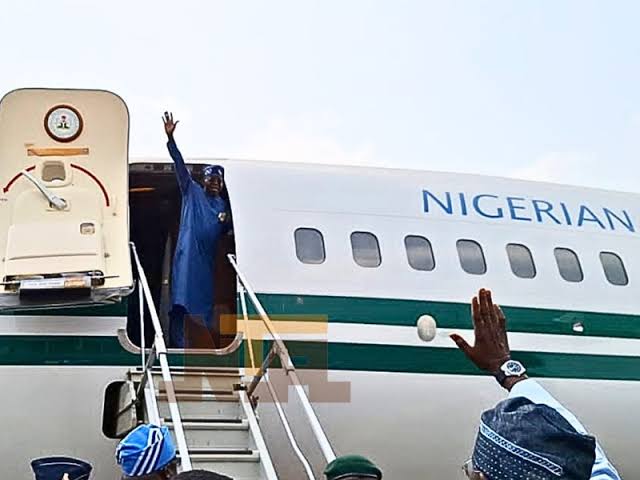
Daniel Otera
Following the gruesome massacre of over 200 people in Yelewata, Guma Local Government Area, President Bola Tinubu visited Benue State today in what could be a defining moment in Nigeria’s troubled response to years of communal bloodshed and mass displacement.
The scale of the June 13 killings carried out using sophisticated weapons and fire has shocked the nation and drawn widespread condemnation. Entire households were wiped out. Children and women were among the victims. Homes were torched. Now, pressure is mounting from all corners: state lawmakers, opposition parties, civil society, and even international organisations for decisive action.
In an emotionally charged Tuesday session, the Benue State House of Assembly passed a sweeping resolution accusing all tiers of government, Governor Hyacinth Alia, his deputy Sam Ode, and all 32 lawmakers of collectively failing the people.
One lawmaker, Thomas Dugeri, called it a “systemic failure of leadership,” while others, including Majority Leader Terna Shimawua, labelled the violence “genocide.”
The Assembly’s resolutions include calls for a three-day mourning period, the full enforcement of the anti-open grazing law, and the mobilisation of state-backed Civil Protection Guards to complement federal security efforts. Importantly, they urged Tinubu to declare a state of emergency in Benue, drawing comparisons to the Rwandan genocide and Holocaust to underline the depth of the tragedy.
But the call for emergency rule has fractured the political class. While the opposition PDP and CUPP insist the killings justify a suspension of democratic structures, the Benue chapter of the PDP rejects the idea outright, citing the need to preserve constitutional governance.
The APC in the state has dismissed the demand as “mischievous,” arguing that insecurity in Benue is neither new nor exceptional compared to crises in other North-Central states.
Still, critics are demanding answers from the President.
PDP National Youth Leader Timothy Osadolor recalled Tinubu’s 2014 tweet, where he said, “On matters of security, the buck stops at the president’s table.” Now that he is Commander-in-Chief, they argue, Tinubu can no longer afford silence or delay.
“He found it convenient to declare a state of emergency in Rivers State, where no one died. Why not in Benue?” Osadolor asked. CUPP spokesman Mark Adebayo added, “It feels like the Federal Government doesn’t consider Benue part of Nigeria.”
Following the massacre, the Chief of Defence Staff, Gen. Christopher Musa, and Inspector-General of Police Kayode Egbetokun visited Makurdi and Yelewata on June 16. Gen. Musa directed Operation Whirl Stroke to ramp up intelligence gathering and community engagement.
During a town hall meeting with traditional rulers, youth leaders, and other stakeholders, he declared: “This must stop.”
The United Nations also issued a strong statement condemning the attacks. Through Deputy Spokesperson Farhan Haq, Secretary-General António Guterres called the killings “unacceptable” and urged that the perpetrators be brought to justice.
Today, President Tinubu is in Benue, facing one of the most politically and emotionally volatile regions in Nigeria. According to his Special Adviser Bayo Onanuga, Tinubu is meeting with traditional rulers, political leaders, youth groups, and community stakeholders to “assess firsthand” the security crisis.
In preparation, roads in Makurdi were hastily patched. Hotels are booked out. Security has been tightened. The President had earlier dispatched the SGF, intelligence chiefs, and key National Assembly defence committee chairs to consult with local leaders.
SGF George Akume, a Benue native, has taken a leading role, revealing that a security brief previously handed to the state governor by retired generals is being revisited.
“They also believe that President Tinubu will engage and ensure peace returns,” Akume said.
Benue has seen repeated cycles of violence linked to farmer-herder clashes and land disputes. Despite numerous interventions, security remains fragile. Many locals feel abandoned and powerless.
For the victims of Yelewata and beyond, Tinubu’s visit may be the last hope for federal sincerity. But it also risks becoming another symbolic gesture unless accompanied by real reforms on security funding, enforcement of anti-open grazing laws, and accountability for past failures.
While some voices warn against politicising the crisis, others argue that the lives lost in Benue demand far more than condolences or high-level visits.
